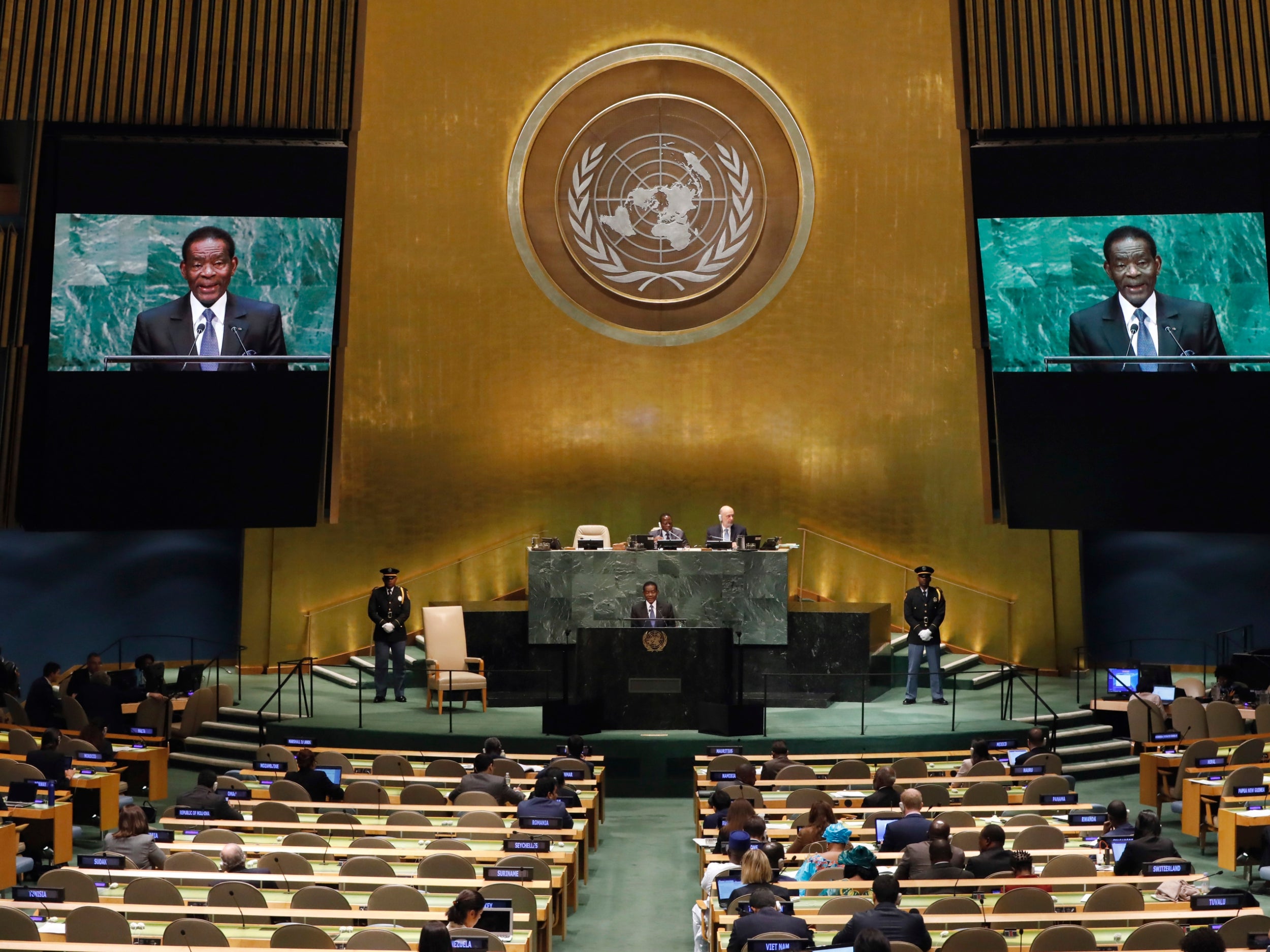The United Nations has a secret funding crisis – and I know because I work there
The confused priorities of the US, Russia and China mean that some people are quietly hoping for an end to UN Agencies

Your support helps us to tell the story
From reproductive rights to climate change to Big Tech, The Independent is on the ground when the story is developing. Whether it's investigating the financials of Elon Musk's pro-Trump PAC or producing our latest documentary, 'The A Word', which shines a light on the American women fighting for reproductive rights, we know how important it is to parse out the facts from the messaging.
At such a critical moment in US history, we need reporters on the ground. Your donation allows us to keep sending journalists to speak to both sides of the story.
The Independent is trusted by Americans across the entire political spectrum. And unlike many other quality news outlets, we choose not to lock Americans out of our reporting and analysis with paywalls. We believe quality journalism should be available to everyone, paid for by those who can afford it.
Your support makes all the difference.The United Nations is gripped by a secret cash flow crisis, the scale of which it hasn’t seen since Ronald Regan started to withhold contributions to gain political leverage in the 1980s. Now, while the budget is “secure”, major donors – including the USA – are withholding their contributions, causing pressures that will have an impact far beyond its nerve centres.
The UN accrues its budget on a pretty simple premise: everyone pays a percentage of their GDP, with the United States never paying more than 22 per cent. Since it was established in 1945 the system has by and large worked. Almost all the countries in the world make up the “Member States” of the United Nations, and as the arc of human development by and large bends towards peace, the inertia created by 193 Member States having an “equal” voice in effect causes countries to by and large hammer out issues through dialogue. If you want a voice, you need to pay. But the kicker is that you can run into arrears for two years without losing it.
While tragic, wars and unrest since 1945 have largely been through internal unrest and change (Rwanda, South-Sudan and Iran) or through point to point invasion/action (USA/Vietnam and United Kingdom/Argentina). But the UN and NATO have enabled countries to collectively resolve challenges as they presented themselves. By and large, when the measure is not dropping nuclear weapons, or global war, the forum has worked pretty well at mitigating issues and working out how to resolve them as they present themselves.
The end of the Second World War, in much the same way as the end of the first, required deep soul searching on what the new world order should be. Lessons learned from the failure of the League of Nations were brought onboard and efforts redoubled to create a system which enabled global diplomacy.
But with the 75th anniversary of the founding of the UN approaching, the lessons learned are seemingly disappearing from our public consciousness. These lessons are needed now more than ever, but the UN is now under severe threat. Withholding contributions can affect many parts, but the largest impact is felt within what is called the “Regular Budget” – the portion which pays for the Secretariat.
This week, that message was delivered starkly at a staff meeting. The cash flow is at the point that the working capital and reserves are depleted. The trend is getting worse, not better.
In the past, the US has been the “Leader of the Free World”. But now, as the US starts to resemble a petulant child, others start to infringe on human rights in places that you wouldn’t expect, such as Hong Kong. Coupled with this, surrogates are circling like vultures calling for the end of UN Agencies.
The message from the US is simple: we are stepping back. As the leader of the free world looks to pass on the mantle, the UK is dealing with Brexit, Germany is heading for recession, Italy is imploding and France continues to have issues with fluorescent vests. On the other side of the coin, Russia is resurgent with Crimea and China is playing hardball with Hong Kong.
What sort of world do we want? If we want peace, stability, and security, we have to pay for it. For the US this amounts to roughly $35 a person. This a person seems pretty cheap for pretty much close to global peace and development. But if it does seem too much, who do you want to lead the world? The US or China? I know who I’d choose.
Emin Pasha is the pseudonym of a diplomat at the United Nations in New York.
Join our commenting forum
Join thought-provoking conversations, follow other Independent readers and see their replies
Comments